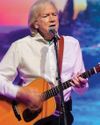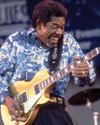
19th-century Europe saw some of the most important and influential exponents of the Western classical guitar tradition living and working alongside each other as peers, mostly in and around Spain and Italy. At the time Paris had also become a hotbed for the classical guitar tradition in the years approaching the infamous Impressionism movement, with luminaries such as Matteo Carcassi, Dionisio Aguado, and Ferdinando Carulli all residing in the capital during this period. Born in 1806, Napoléon Coste (named after Napoléon Bonaparte by his father) hailed from the east of France where he spent his early career earning a living preforming and teaching. He was originally taught the instrument by his mother but then later moved to Paris aged 24, where he studied with the great Spanish guitarist and composer Fernando Sor [see GT346]. Coste ingratiated himself with his peers and quickly went on to be hailed as the leading French virtuoso guitarist of that generation. He left a lasting impression on his teacher, such that the final piece Sor ever wrote was dedicated to his pupil.
During his life Napoléon Coste is known to have written well over 60 works for the classical guitar, mostly self-published, and with many of his works containing several separate pieces within; for instance, the Barcarolle presented in this month’s issue is taken from his Opus 51 Récréation du Guitariste (‘The Guitarist’s Break’) which is a suite of 14 short pieces of increasing difficulty for the casual player.
هذه القصة مأخوذة من طبعة June 2023 من Guitar Techniques.
ابدأ النسخة التجريبية المجانية من Magzter GOLD لمدة 7 أيام للوصول إلى آلاف القصص المتميزة المنسقة وأكثر من 9,000 مجلة وصحيفة.
بالفعل مشترك ? تسجيل الدخول
هذه القصة مأخوذة من طبعة June 2023 من Guitar Techniques.
ابدأ النسخة التجريبية المجانية من Magzter GOLD لمدة 7 أيام للوصول إلى آلاف القصص المتميزة المنسقة وأكثر من 9,000 مجلة وصحيفة.
بالفعل مشترك? تسجيل الدخول

THE MOODY BLUES
This month Stuart Ryan delves into the picking style of this British prog legend whose acoustic guitar has powered many a Moody Blues song.

WAYNE KRANTZ
This issue Nick Mellor provides an insight into this brilliant jazz stylist, focusing on his approach to improvising over static chords.

OPEN G TUNING
Open tunings are great fun and can help create exciting new ideas. Simon Barnard shows how to incorporate open G tuning into your playing.

RODRIGO GOUVEIA
Last month we featured Mateus Asato, and mentioned the importance of the neo-soul style in his playing. Here we turn to his fellow Brazilian, the master of neo-soul fusion.

MARK KNOPFLER
Our topic this month is a master craftsman as both guitar player and songwriter. His style is unique and his influence spreads far and wide.

U2
Martin Cooper checks out the chiming pedal delay tones of this stadium-filling band from Dublin, Ireland, and guitarist The Edge.

LUTHER ALLISON
It’s blues with a touch of soul this month, as David Gerrish explores the dynamic, expressive style of an often overlooked Chicago bluesman.

JOHANN KASPAR MERTZ Capriccio
This month Declan Zapala explores the music of Austria at the turn of the Romantic period with a fiery caprice to level up your fingers and unlock your inner virtuoso.

THE CROSSROADS Michael Landau
John Wheatcroft explores the playing of a session ace _ and blazing blues-rock maestro who graces the top-flight m band of singer-songwriting legend, James Taylor.

VIDEO MASTERCLASS Troy Redfern
This month GT welcomes this slide guitar virtuoso. If you've been wanting to take your slide playing to the next level then this is one's for you. With Jon Bishop.